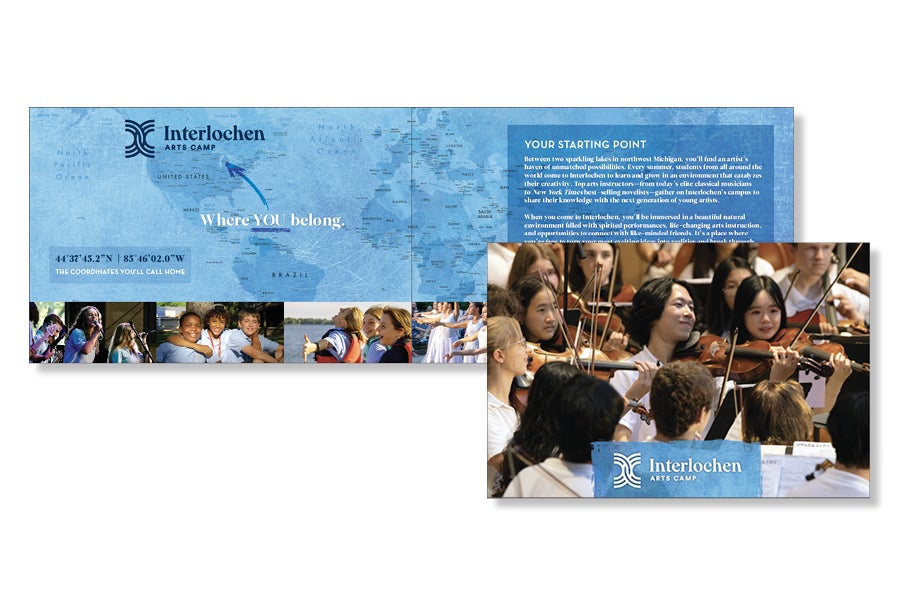The top creative writing camps in the US: How to choose the right writing camp for you
Looking for genre-specific instruction, a college campus experience, or solid financial support? There’s a writing camp for you.

The right summer writing program can be a transformative experience for young creative writers. The ideal camp not only develops writing skills but also provides inspiration, community, and personal growth. Here’s a guide for students and parents on how to choose the best writing camp by navigating all the most important considerations—from financial aid to student diversity.
Niche Exploration: Specializing in Your Craft
Not all writing camps are created equal, and specialized programs offer unique opportunities for focused artistic development. These camps recognize that writing is a diverse craft with multiple genres and styles. By offering concentrated study in specific writing forms, these programs allow students to deeply explore their particular interests. Such targeted instruction goes beyond general writing skills, providing nuanced techniques, genre-specific insights, and expert guidance.
Shared Worlds at Wofford College stands out in this category. Focused on speculative fiction, science fiction, fantasy, and steampunk writing, the two-week residential program allows 8th-12th grade students to work with experienced world-building coordinators. Participants learn from renowned science fiction and fantasy writers, creating entire fictional universes and developing specialized writing skills.
Cultural Diversity: Expanding Creative Perspectives
Diversity in writing camps is crucial for developing well-rounded, empathetic writers. Programs that bring together students from varied backgrounds create rich learning environments that challenge assumptions and broaden creative perspectives. True diversity extends beyond racial representation, encompassing differences in socioeconomic status, geographic origin, religious experience, and personal identity. These multifaceted experiences prepare young writers to create more authentic, nuanced, and inclusive work.
JCamp, hosted by the Asian American Journalist Association, demonstrates this commitment to diverse storytelling. The six-day program in Austin, Texas, actively works to address representation gaps in media by welcoming students from all across the nation. Participants work with veteran journalists, gaining hands-on experience that emphasizes the importance of varied voices in storytelling.
College Campus Experience: A Bridge to Higher Education
Writing camps hosted on college campuses offer more than just summer instruction—they provide a valuable preview of collegiate life. These programs immerse students in an authentic higher education environment, allowing them to experience college-level writing workshops, interact with university faculty, and develop independence. Participants gain insights into academic expectations, writing techniques, and potential career paths. Moreover, these experiences can help students build confidence, develop critical networking skills, and potentially inform their future college selections.
The Reynolds Young Writers Workshop at Denison University represents a model of this approach. For more than 25 years, this program has offered high school students an intensive 8-day writing experience. Working directly with Denison's creative writing faculty, students engage in small workshops that provide intimate, professional-level instruction.
Financial Aid: Breaking Down Barriers
Creative writing camps represent a significant investment in a young writer's education. However, financial constraints shouldn't prevent talented students from chasing their passion. Many camps offer comprehensive financial aid programs that bridge this gap, providing opportunities through merit-based and need-based scholarships. Families should carefully research each camp's financial support options, understanding that aid can range from partial tuition reduction to full scholarships. The most inclusive programs demonstrate a commitment to supporting talent regardless of economic background.
Interlochen Arts Camp exemplifies this commitment to financial accessibility. Founded in 1928, the camp offers robust support, with 52% of students receiving aid and 85% of aid applicants successfully securing assistance. Featuring instructors like New York Times bestselling author Brittany Cavallaro, Interlochen provides writing programs on topics as widespread as graphic narrative and novel writing, ensuring that financial limitations don't restrict creative potential.
Tips for Navigating the Selection Process
As you take these points into consideration, start your search by conducting thorough research that goes beyond surface-level information. Carefully review program descriptions to understand the true nature of each opportunity. If it’s available to you, attend information sessions and talk with camp alumni. You might want to create a personal checklist that evaluates other key factors: instructor credentials, student-to-teacher ratios, specific writing workshops offered, and potential long-term benefits. Look for programs that provide tangible deliverables like writing portfolios, potential publishing opportunities, or college recommendation letters. Pay attention to the camp's track record—do previous participants go on to win writing competitions or publish their work? The goal is to find a camp that not only matches your current writing skills but also challenges you to grow, providing an environment that nurtures creativity while offering practical, professional-level instruction.
Finding Your Perfect Writing Camp
Choosing the right writing camp is a personal journey of creative discovery. Whether you’re seeking significant financial support, college-level instruction, genre-specific training, or a diverse learning environment, the perfect summer program exists for you. With careful research and an open mind, young writers can find a camp that not only enhances their writing skills but also provides a transformative personal experience.
The path of a young writer is as much about self-discovery as it is about mastering the craft of storytelling. Your ideal writing camp awaits—an opportunity to explore, grow, and unleash your creative potential.
Interlochen Arts Camp is the nation’s premier multidisciplinary summer arts program. Guided by internationally renowned artists, students in grades 3-12 study music, theatre, dance, visual arts, creative writing, interdisciplinary arts, and film in a natural setting alongside like-minded peers.
Dive deeper into Interlochen Arts Camp with a free digital viewbook






